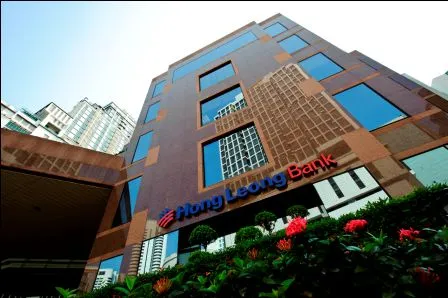
Hong Leong Bank pushing for 10% loan growth in FY15F
To be driven by residential mortages.
For FY15F, the management of Hong Leong Bank aims to improve loan growth to 10%, led mainly by residential mortgages, which have been growing ahead of industry and SMEs.
According to a research note from Nomura, the bank will continue to sustain margins at the current level through active liability management and/or allowing a higher LDR.
Furthermore, through cost discipline, the cost income ratio is expected to trend lower towards the 42% mark.
Here's more from Nomura:
Hong Leong Bank reported FY14 net earnings of MYR 2.102bn, coming in 4% above Street estimates but 4% below our forecast.
Loan growth of 7% was lower than we had anticipated (10%), but margins were stable at ~2%.
What do the results mean? Hong Leong Bank continues to exhibit three key favourable trends, which have been intact throughout the year:
[1] NIMs have been mostly stable y-y at ~2%, one of the few Malaysian banking groups to have achieved this feat. This was attributed to good asset-liability management where the focus is growing CASA, keeping term deposits unchanged and allowing a slightly higher LDR of 80% (FY13: 79%);
[2] cost income ratio improved to 44% from 46%, following a headcount rationalisation exercise completed in FY13 and keeping SG&A expenses stable;
[3] asset quality is very strong with the NPL ratio falling to 1.2% from 1.4% and a high coverage ratio of 129%.
Key numbers
Loan growth – Hong Leong Bank’s loan growth of 7% y-y was led by mortgages (14% y-y, ahead of the industry’s 13%), resulting in overall loans to individuals increasing 9% y-y while SME loans increased 12% y-y. Auto loans, which comprise 17% of total loans, declined 0.3% y-y, while corporate loans also remained flattish y-y.
Deposit growth – Overall deposits increased 5% y-y, with CASA rising at a faster pace of 7%, resulting in a stable CASA ratio of 26% in spite of a meaningful rise in corporate deposits. The loan to deposit ratio for the bank increased to 80% from 79% in FY13 and ranks as one of the lowest in the industry.
Non-interest income – Overall NII ratio fell to 23% in FY14, from 26% in FY13, due mainly to the sharp declines in treasury and FX income.
Operating expenses – Hong Leong Bank continues to excel at cost discipline with the overall cost income ratio for FY14 at 44% from 46%.
Personnel costs fell 1% y-y with reduced marketing and other costs resulting in overall costs falling 3% y-y. Recall, the bank carried out a staff voluntary separation scheme in FY13 following the merger with EON Bank group.
Asset quality – continues to remain the best in industry (after Public Bank) with NPL ratio improving to 1.2% (1.4% in FY13, industry average at 1.8%) and loan loss coverage ratio of 129%, versus the industry average of 105%.
Capital ratios – remained adequate with CET1 ratio at 10.5% and fully loaded CET1 at 8.9%, as per management.













 Advertise
Advertise










